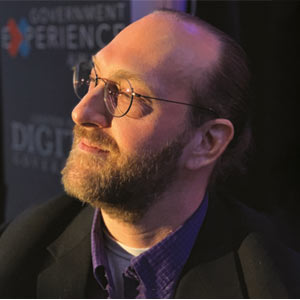THANK YOU FOR SUBSCRIBING

Technology and Digitization will Accelerate Business Transformation
Roger W. Parks, VP-IT & CIO, J.R. Simplot Company


Roger W. Parks, VP-IT & CIO, J.R. Simplot Company
The IT industry today is going through one of the greatest transformations in its history. This IT transformation is disrupting traditional business models, while creating new revenue streams, reducing operating costs and inefficiencies, redefining and streamlining supply chains, changing the way work is done and enhancing customer engagement. Due to this digital transformation many businesses are being reinvented. Technology is reshaping business, government and society, thus changing the role, value and criticality of IT and the CIO or IT executive in the enterprise.
Advancements in information technology, the internet of things, consumerization of technology, social media, mobility, big data/business analytics, cloud computing, network services with high speed connectivity, and other innovative technologies are facilitating and enabling globalization of business. With ubiquitous high speed connectivity; computing access anywhere, anytime in the world; and the changing role of data/information to be viewed and managed as a critical business asset emerging economies and smaller start-up businesses are enabled to compete on the global stage. Senior company executives who understand the value and competitive advantage that technology and IT solutions can provide to their enterprise include information technology as a core component of their global business strategy. They will be innovative leaders in their industry. By embracing technology as a core component of their business strategy these executives/business leaders will ensure their company remains competitive, viable and sustainable. The companies that emerge as winners in their industry will be the ones that prepare for change and create a corporate culture that embraces continuous business transformation.
The next generation workforce and business leaders will be more dependent on technology and information than any business paradigm in history. Work will be powered by converged business technology with employees, suppliers, and customers connected globally 24x7. Technologies such as robotics, Global Positioning Systems (GPS), laser-guided vehicles, 3D Printing, and others will either perform jobs that have traditionally been performed by humans or change the talent and skills required to do those jobs. These technologies will create new ways that work will be performed.
Beyond current technologies, there are a number of emerging technologies that will be game changers for many industries.
• Software Defined Networks
Mobile devices, social media, sensors, and cloud computing are stressing networks to their limit
• Software Defined Storage
Next evolution of virtualization is storage, enabling optimization of traditional storage driven in large part by the growth of unstructured data
• Next Generation of Robotics
Enabling human and machine collaboration to be a reality, as an example: in the near future we will see robots used in precision agriculture for weed control and harvesting, replacing many of the human workers that traditionally performed this work
• 3D Printing and Additive Manufacturing
Will create disruption to traditional manufacturing processes and supply chains - Additive manufacturing starts with a variety of materials, either liquid or powder, and using 3D printing builds the materials into a three-dimensional shape using a digital template, one layer at a time
4D Printing is being developed now and will be the next generation of this technology – 4D Printing will be able to produce products that can alter themselves in response to environmental changes, such as heat and humidity
• Emerging artificial intelligence where computers will be able to learn on the job
Computers and machines will take on more of the tasks that have traditionally been performed by humans, and may even perform the activity or task better than a human
• Distributed manufacturing
Coupled with 3D Printing will create the factory of the future and change the way many products are developed and delivered to the end consumer
"The next generation workforce and business leaders will be more dependent on technology and information than any business paradigm in history."
As CIOs and IT executives, it is our responsibility to lead the transformation from operational to strategic. The entire IT ecosystem from infrastructure-to-delivery-to-support is changing. IT leaders must change the perception of IT’s value from delivering services faster, better and cheaper to delivering services that help the business grow, remain competitive and sustainable. The next generation CEO will expect IT to power their business into adjacent markets and channels. One of the keys to enabling the business to engage adjacent markets is the CIO’s ability to move IT’s capabilities from traditional back-office systems to customer facing solutions. The new social enterprise will require a different level of thinking by the CIO and IT organization.
Finally, as we start thinking about the emergence of the new technologies—robotics, machine learning, and other emerging technologies —we can see that there is going to be a huge transformation, not only in IT, but in how businesses are run and the type of talent that executives are going to be looking for in the future to run their companies. A lot of traditional thinking is going to go by the wayside. Individuals that understand these emerging technologies and how to leverage them are really going to drive business value and be the next generation business leaders replacing the traditional executives.
The J. R. Simplot Company commonly referred to as Simplot, is an agribusiness organization which is headquartered in Boise, USA. Founded in 1929, Simplot employs over 10000 people all over the world with branches in Australia, Canada, Mexico, China and several other regions.
See More: Top Fleet Management Technology companies in APAC
Weekly Brief
I agree We use cookies on this website to enhance your user experience. By clicking any link on this page you are giving your consent for us to set cookies. More info
Read Also
Artificial Intelligence - Myths And Truths
Sustainable Future through Innovative Technology Solutions
The Future Relies on Augmented AI
Digitalization with the use of digital technologies/Improving business through digital technologies
How Marco's Pizza Leaned On Technology To Succeed Amid The Pandemic By Quickly Pivoting To Contact-Free Delivery And Curbside Carryout
Bunnings Diy Digital Transformation
For a Smarter City: Trust the Data, Ignore the Hype
Smart Community Innovation for the Post Pandemic





















